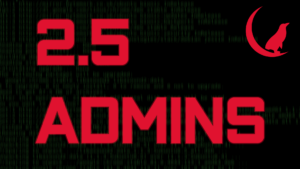
 2.5 Admins
2.5 Admins 2.5 Admins 227: Six Day Certs
7 snips
Dec 26, 2024 Discover how Windows SSH is unexpectedly sending more telemetry than you might think. Learn about Let’s Encrypt's new six-day SSL certificates and the implications for your infrastructure. The importance of setting up SPF and DMARC records for domains that don't send emails is highlighted, protecting your domain's reputation. Plus, get insights into troubleshooting sluggish performance issues on a Synology NAS and optimize file transfers. Tune in for a blend of tech tips and security advice!
AI Snips
Chapters
Transcript
Episode notes
Windows SSH Telemetry
- Windows SSH sends connection metadata to Microsoft, raising privacy concerns for Jim.
- This telemetry feels intrusive, similar to how police use call records metadata.
SSH Client Choice
- Avoid the built-in SSH client on Windows due to telemetry concerns.
- Use upstream OpenSSH or clients like Putty for better privacy.
Let's Encrypt Monitoring
- Let's Encrypt's upcoming 6-day certificates necessitate improved monitoring.
- Automate certificate renewal and monitor its process to avoid issues.

